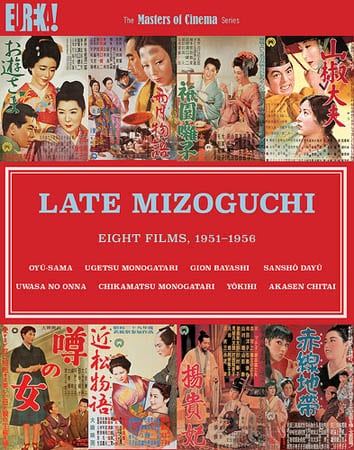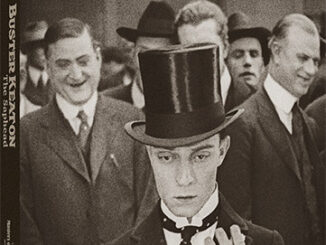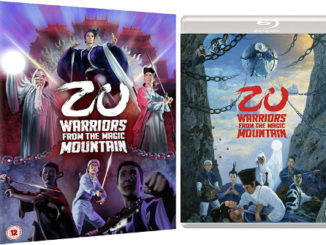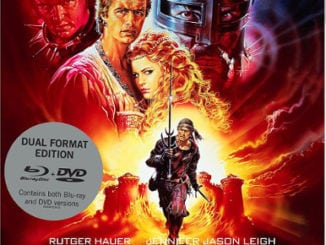
Eureka! Entertainment have announced the release of LATE MIZOGUCHI: EIGHT FILMS, 1951–1956, Eight masterpieces compiled together on 1080p Blu-ray for the first time will be released as part of The Masters of Cinema Series on 21st October 2013.
Kenji Mizoguchi looms over the history not only of Japanese cinema — but of world cinema altogether. These eight films from the last decade of Mizoguchi’s career represent a collection of eight of his greatest works, which is to say, eight of the greatest films ever made.
Oyû-sama (1951) is an adapatation of Tanizaki Jun’ichirô: a poignant tale of two sisters and their ill-fated relationship with the same man: a tale of the social mores and affairs of the heart that might destroy siblings.
Ugetsu monogatari (1953), a ghost-tale par excellence and one of the most highly acclaimed works of the cinema, is an intensely poetic, sublimely lyrical tragedy of men lured away from their wives which consistently features on polls of the best films ever made.
Gion bayashi (1953) is a drama set in the world of the geisha, a subtle masterwork that yields a myriad of insights into the lives of Japan’s “service-class” in the early ’50s.
Sanshô dayû (1954), aka Sanshô the Bailiff, recounts an unforgettably sad story of the 11th century involving kidnapping and indentured servitude — and figures, again, with its exquisite tone and purity of emotion as one of the most critically revered films of any era.
Uwasa no onna (1954), another Mizoguchi picture set in a modern geisha house, pits mother against daughter, with the ensuing drama forcing both to confront their attitudes toward family and business in what is one of the filmmaker’s most astute filmic examinations of oppressed femininity.
Chikamatsu monogatari (1954), aka The Crucified Lovers, is the tragic story of a forbidden love affair between a merchant’s wife and her husband’s employee, was hailed by the legendary Akira Kurosawa as “a great masterpiece that could only have been made by Mizoguchi.”
Yôkihi (1955), aka The Princess Yang Kwei-fei, recounts an 8th-century Chinese story of a widowed emperor and his imperial concubine, filmed in sumptuous, hallucinatory Agfa-stock colour.
Akasen chitai (1956), aka Street of Shame, is Mizoguchi’s final masterpiece and one of the greatest last films ever made, depicting the goings-on in a Tokyo brothel carrying the name “Dreamland,” where dreams are nevertheless shattered beneath the weight of financial necessity and all questions of conscience — a last testament which inspired the great French critic Jean Douchet to proclaim: “For me, along with Chaplin’s Monsieur Verdoux and Renoir’s La Règle du jeu, the greatest film in the history of the cinema.”
SPECIAL FEATURES:
• High-definition 1080p transfers of all eight films
• Optional English subtitles
• Tony Rayns video discussions on each of the eight films
• Original trailers
• Approximately 200 illustrated pages of booklet material compiled together
• The first time Chikamatsu monogatari, Uwasa no onna, Akasen chitai, and Yôkihi have appeared on Blu-ray anywhere in the world
• Limited edition run of only 2000 copies





Be the first to comment